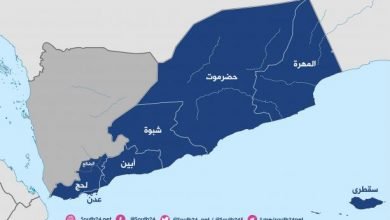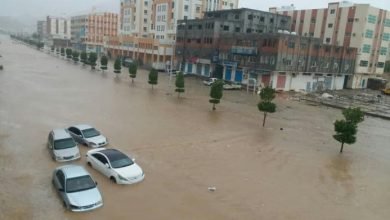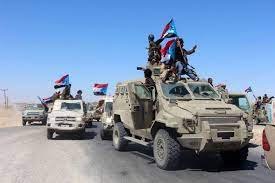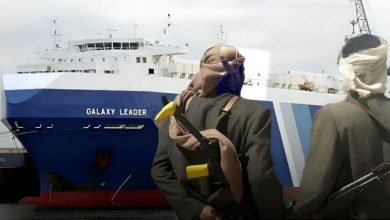Houthis intensify attacks in quest for control of Marib, bargaining chips
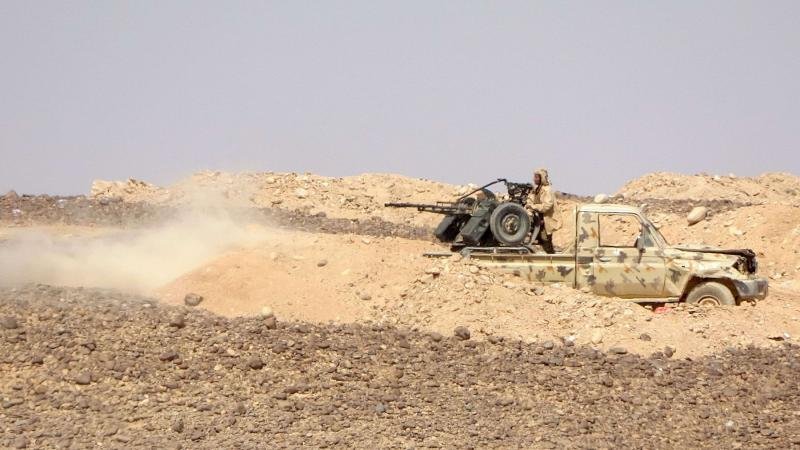
SMA NEWS – Marib
The Iran-backed Houthi militias are increasingly targeting Saudi sites in an effort to push Riyadh to accept their control over Marib. Capturing the oil-rich strategic city would enable them to control Yemen’s north and have in their hands precious bargaining chips for any future negotiations on a final solution to the crisis.
Such Houthi calculations prompted the Saudi air force to intervene to stop their advance towards vital locations around Marib, while forces loyal to the Yemeni government launched counterattacks to thwart the Houthi offensive.
A statement issued by the Houthis said, “The drones air force carried out an air attack on the Saudi airports of Jeddah and Abha on Monday morning using two ‘Samad 3’ and ‘Qasef 2′ aircraft… the precise targeting forced the two airports to stop their activity for two consecutive hours.”
The Saudi-led coalition in Yemen announced early Monday morning that “the joint coalition forces were able to intercept and destroy a (booby-trapped) unmanned aircraft launched by the Iranian-backed Houthi militia in a deliberate manner aimed at targeting civilians and civilian sites.”
On Sunday evening, the coalition announced the destruction of two booby-trapped aircraft launched by the Houthi militias towards civilians in south-western Saudi Arabia, adding that its forces have succeeded in intercepting 515 Houthi drones and 345 ballistic missiles since the start of its operations in Yemen in 2015.
Yemeni analysts believe the increased attacks on Saudi sites and their expansion to target Jeddah airport is aimed at pressuring Riyadh to halt the Saudi air force’s intervention in Marib.
Through their air force attacks, Saudi Arabia wants to prevent the Houthi advance and provide cover for Yemeni forces defending the strategic city.
These analysts say that the Houthis’ message to Saudi Arabia is clear: “Give us Marib and we will stop bombing your airports and civilian sites.”
But the same analysts see it as unlikely that Saudi Arabia will accept this type of blackmail. They believe Riyadh knows very well that the Houthis will not stop their attacks regardless of any gains they achieve, as they are carrying out an Iranian agenda whose main aim is to threaten Saudi national security. The analysts share the view that the only way to force the Houthis to stop their attacks is by military means, especially since the Houthis’ window of opportunity is limited as they are fighting to secure quick gains before the United States introduces a political settlement.
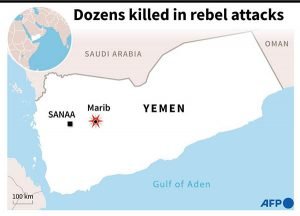
Marib represents a major asset for the Houthis if they can control it, not only because of its oil reserves, but because of its strategic location that connects to Hadramawt and the south and contributes to protecting Sana’a. In addition, controlling it may be an easier option than the Taiz line. It also represents a major pillar for the Houthis in the event the system of regions is eventually implemented and the group transforms the areas it controls into a northern region that includes major cities as well as Houthi controlled locations.
The city is seen as a “Saudi protectorate” in which the kingdom invested heavily to make it the only attractive site for business in a country mired in war. The kingdom has promoted the city in an effort to turn it into a major magnet for investment and urban projects.
The Houthi militias control the most densely populated areas in Yemen – most notably Sana’a and Hodeidah, which includes two international ports — and most of the northern governorates, such as Amran, Dhamar, Ibb, Al-Bayda, Al-Mahwit, Raymah, the centre of Hodeidah governorate and most of its districts, Hajjah and most of Saada governorate.
Yemeni observers believe the Houthi attacks also aim to pressure Riyadh to be more supportive of the ceasefire plan and to secure as much gain on the ground as possible to use for political gains.
These observers say that the Houthis are trying to take advantage of the state of confusion within the new US administration about the Yemeni file and to project an appearance of being a strong party after six years of war. This, they hope, could encourage the administration of US President Joe Biden to deal with the Houthis as a key partner towards a future solution the same way the administration of former President Barack Obama did in the past.
They believe the Houthis have another goal related to the Iranian file: an attempt to blackmail the international community and the new US administration into returning to negotiations on the nuclear file without preconditions, especially with regard to Iran’s regional role. This includes Tehran’s commitment not to target the movement of oil exports and international shipping, as well as to halt its interference in countries such as Yemen, Syria, Iraq and Lebanon.
Yemeni government forces repelled the Houthis’ attempts to advance on several fronts towards the city of Marib.
Military officials in the government forces confirmed that these forces fought battles with the Houthis on several fronts — west, south and north of Marib, about 120kms east of the capital, Sana’a, where the rebels have imposed their control since 2014.
The Iranian-backed militias have been waging a campaign to control the city for more than a year and have intensified their attacks in the past two weeks. Dozens of people have been killed and injured on both sides, amid intense air strikes by the Saudi-led military coalition in this country since 2015 in support of the government.
According to military officials, the Houthis have mobilised hundreds of their members to move towards the Jabal Murad district, south of Ma’rib, and were able to briefly capture some locations before being “forced to retreat under air strikes.”
The officials also said that a number of Houthis were ambushed and killed while eighteen were captured in Harib district, south of Marib, as coalition fighters destroyed Houthi reinforcements coming from Sana’a and bombed their sites in the Medghal district, north of Marib.
The Houthi attacks against Marib have intensified since the Biden administration cancel former President Donald Trump’s administration’s decision to designate the Houthis a terrorist organisation after humanitarian organisations expressed concern that the designation would hinder the delivery of aid to millions of civilians.


